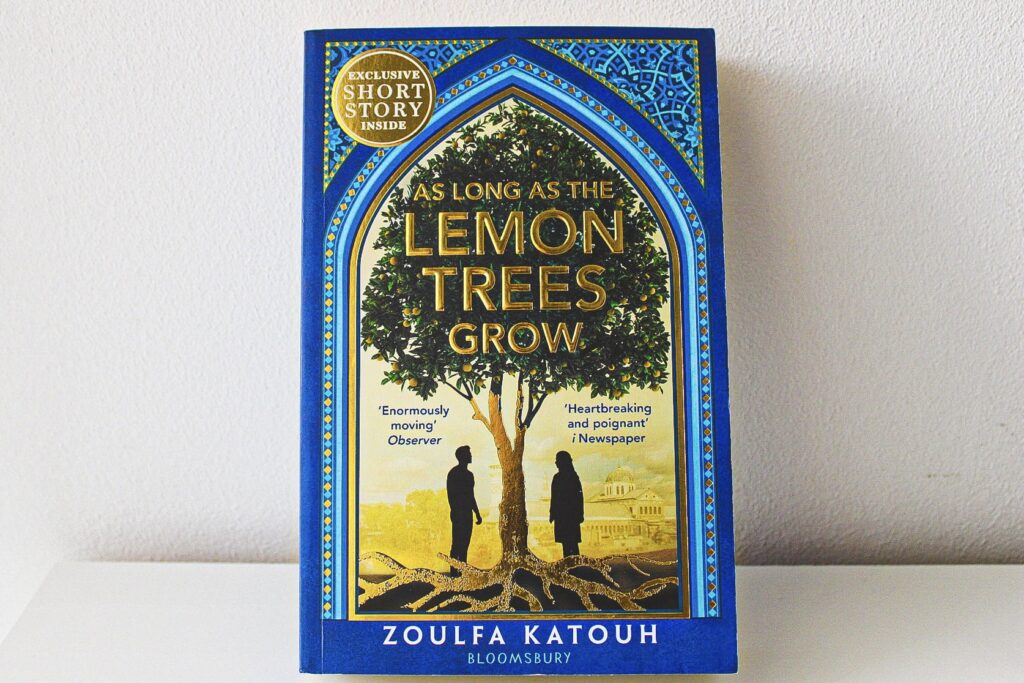
- ARAB NEWS
- 17 Jul 2025

DUBAI: Syrian-Canadian writer Zoulfa Katouh’s debut novel ‘As Long As The Lemon Trees Grow’ follows the story of Salama Kassab, an 18-year-old pharmacy student, and Kenan Aljendi in war-torn Syria, as they find peace and tranquility in Studio Ghibli’s enchanting movies and landscapes.
Forced to put her education on hold due to the 2011 Syrian revolution, Kassab begins to volunteer in a hospital in her hometown, Homs, to help those who are wounded. Her only remaining family is her pregnant sister-in-law, Layla, whom she desperately tries to find a way out of Syria for.
In the opening chapters, readers catch a glimpse of Kassab’s life pre-war, where she finds beauty in her life by associating them with various Hayao Miyazaki movies. One of the only moments that she remembers the day before her mother dies is the mother conversing while Kassab was watching the 1997 fantasy movie ‘Princess Mononoke.’
Her mother tells her that the boy, whom she is introducing her to in hopes that he will become her spouse, is coming for coffee. Kassab recalls that the dress that her sister-in-law picked for her coffee date resembled Studio Ghibli. “The color was (like) the sea made from rain in Spirited Away. Magical,” Kassab shares.
In chapter six, Kassab meets Aljendi, the male protagonist in the book, who coincidentally happens to be the boy her mother wanted to introduce her to, as he wanders into the hospital where Kassab works to get help for his little sister.
The two characters quickly bond over their love for Studio Ghibli, as Aljendi reveals that he has always wanted to be an animator to recreate stories similar to Miyazaki’s. “Studio Ghibli is my goal. That place is where ideas and imaginations run wild,” he says. “They weave stories like magic there.”
From then on, Kassab starts falling in love with Aljendi and daydreams about what her life might have been if the Syrian civil war hadn’t happened. “I stop and for one minute, allow myself to imagine our ‘might’ life in this dusty hallway. That I’m living my very own Studio Ghibli movie,” the character says. “That in this universe he and I have our own inside jokes, and my ring finger wears the golden band he gave me.”
“In that life,” she continues. “He’d teach me a few Japanese characters, chuckling at my awkward pronunciation. But he’d be patient until I said them right, beaming proudly at me.”
Slowly, Aljendi and Kassab find solace in each other and feel safe through the bond that they formed through Studio Ghibli. He tells her about the 1986 movie ‘Castle in the Sky’ and how it gave him strength to survive, as he reflects on how he saw himself in the characters.
“There’s this scene where Pazu and Sheeta (the characters in the movie) are standing atop the airship and the sky is endless. They were talking about their fears and how a series of unfortunate events made them meet.” he recalls. “This was a story about kids the same age I was. It made me want to be brave too. Made me want to tell my own stories. Create my own worlds, and I thought maybe one day I’d have my own adventure and survive.”
The book, specifically the character’s reflection on the movie, is a reminder that people can find hope in the midst of revolutions and wars in things that exist far away from them. Through the characters’ love for Studio Ghibli, the author was able to portray the resistance that Syrian people have and paint Miyazaki’s movies as a symbol of freedom.
Additionally, through the characters’ admiration of Japanese media, the author swiftly reminds the readers that people who live in countries affected by an ongoing conflict are not statistics of casualties, but are real individuals with interests and aspirations that extend beyond their painful experiences.
“Despite the atrocities my characters have to face, I hope you see them as more than their trauma,” the author shares at the end of the book. “They represent every Syrian. We are owned that life.”
At the end of the book, the two protagonists get married and go through a painful journey to leave Syria. They migrate to Canada, where Aljendi enrolls in university to major in animation, taking a step closer to achieving his dreams of creating stories similar to Miyazaki’s.
In the last page, the characters discuss themes in ‘Princess Mononoke’ while enjoying their new house, completing the narrative’s circle.
Aside from Studio Ghibli, the author also mentioned that she was inspired by various Japanese musicians while writing the book, such as Marika Takeuchi and the ‘Attack on Titan’ composer Hiroyuki Sawano.
“Many emotional scenes were a product of me listening to the (Attack on Titan) soundtrack over and over again,” the author shared. “If (the book) had a soundtrack, it would be Takeuchi’s ‘Horizons.’ I’m sure I’m responsible for half of those Spotify and YouTube streams.
Katouh’s book was picked by UAE’s Japanese bookstore Kinokonya as one of the best fiction books in 2023. The book can be purchased on the website for ¥2,064 and can be delivered to Saudi Arabia, Kuwait, Oman, and Bahrain. The book is available on Amazon Japan for ¥1,939.
The author has published two short stories in the same setting as the book on her website. Her upcoming novel is set to be released this year.